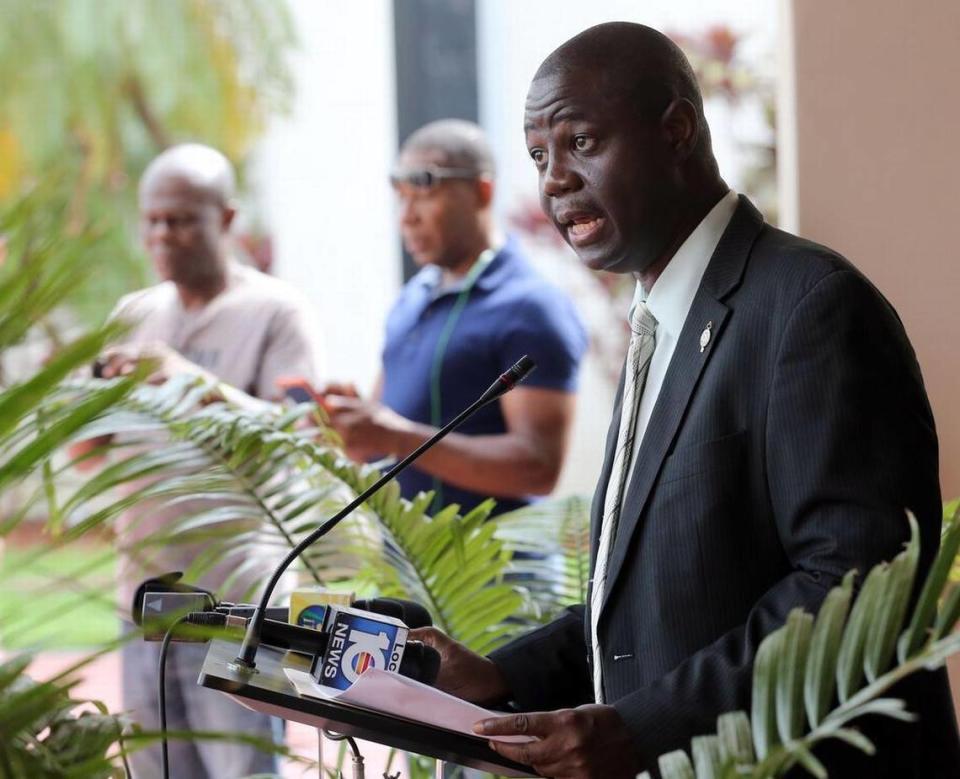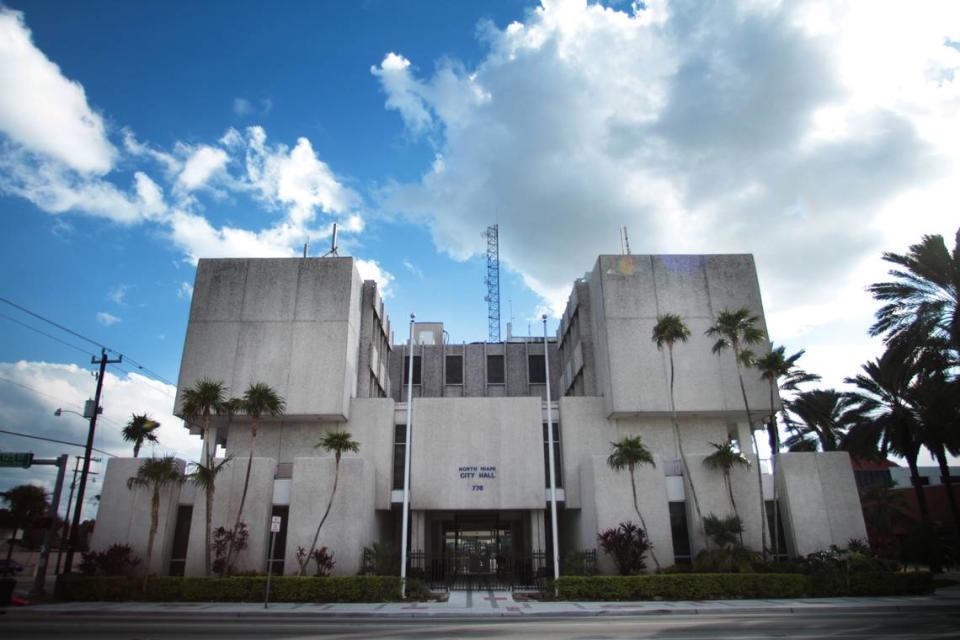North Miami passes citizen investigative board to oversee complaints against police
The city of North Miami passed an ordinance Tuesday establishing a citizen investigative board on a 3-2 vote. The board will investigate complaints against the police department brought by North Miami residents.
Vice Mayor Alix Desulme first introduced the proposal at the June 9 council meeting amid nationwide protests over the death of George Floyd, who was killed in Minneapolis after a police officer knelt on his neck for nearly nine minutes.
“This is definitely a little peace of mind,” Desulme told the Miami Herald. “I do think these are positive things, and I think history will judge us on that later.”
Desulme said the board is an impartial option, as opposed to police internal affairs investigating allegations against its own officers. The ordinance states the board has subpoena power over witnesses, documents, and other potential evidence, but like the county’s proposed panel, it will be unable to subpoena police officers. Desulme said that limitation is something he’d like to see changed.

Miami-Dade County voted to revive its own civilian panel to investigate police misconduct July 8, but Mayor Carlos Gimenez will likely veto the measure because of the subpoena powers granted to the panel. The measure will also appear on county residents’ November ballots as a charter amendment.
Desulme told the Miami Herald that when he proposed the board to the commission, he wanted to see what he could do to “strengthen and make us one of the best police departments in South Florida,” as well as to make sure the city was being proactive rather than reactive.
In 2016, Black behavioral therapist Charles Kinsey was shot by a North Miami officer while protecting his autistic patient playing with a toy truck, which had been reported as a gun. Kinsey was laying on his back with his arms in the air when he was shot. The officer, Jonathan Aledda, was found guilty of culpable negligence.
The occurrence came up a few times at the June 9 meeting, but was referred to simply as “the incident.”
The vote Tuesday split along racial lines, with both white council members voting against the ordinance.
Councilman Scott Galvin, who voted against the ordinance, said there’s “not a need” for the board, which Desulme said is meant to promote accountability and transparency.
“If there’s anything North Miami is doing right, it’s police,” Galvin told the Miami Herald. “I just don’t see our police department as being one of the flaws in the city.”
Desulme fought back against that opposition, which also came up during the public comments section of the meeting.
“I think a lot of folks who, when [they] mention the civilian investigation board quickly, talk about our police chief, our police department and it’s a little bit frustrating when I hear that,” Desulme said, “because this has nothing to do with our police chief or our police department.”
Another line of opposition stemmed from Councilwoman Carol Keys, who said she was “totally in support” of the board but had issues with its potential costs. She wanted the board to move forward with just one employee, rather than with a minimum starting staff of two employees, including an executive director, as proposed.
Keys also only wanted the city to hire investigators as needed to address complaints; under the ordinance, the director can hire staff as needed, which includes investigators, said City Attorney Jeff Cazeau. Keys voted against the ordinance.
“We’re looking at this type of money right now, which we don’t have and which will raise taxes,” Keys said. “I don’t want to fund a whole department. I think it’s overkill.”
Keys said that the employees would probably “be doing nothing right now.”
The ordinance states funding for the board can take up to 1.5% of the police budget. Andrew Axelrad, general counsel for the South Florida Police Benevolent Association, said that the money is still “defunding something.”
At the June 9 meeting, both Desulme and Mayor Philippe Bien-Aime dismissed calls to defund the police.
“The idea of defunding the police department — I don’t share that idea,” Bien-Aime said. “Whoever has that intention better not come and spread it in the city of North Miami because I will go against it.”

Desulme expressed frustration with the financial conversation, pointing to other costly items on Tuesday’s agenda he said had not received similar pushback.
“You know what though, OK, fine, let it raise taxes. My district, my folks, we will pay for it,” Desulme said, although he also disputed the cost of the ordinance as well as whether it would raise taxes. “This is about somebody’s life. You have residents who are calling who say how important this is, yet we are sitting here saying that ‘Oh, this will raise taxes.’ ”
Desulme told the Herald the board should be implemented by Oct. 1, the beginning of the new fiscal year.
A debate on police spending in Broward
South Florida hasn’t seen sweeping reforms or budgetary changes in response to protests against police brutality, as some other cities across the country have. But debates are cropping up at the local level.
In Coral Springs, a city in northern Broward County with 130,000 residents, several people spoke at a virtual commission meeting Wednesday against a proposal for police to take $28,000 in federal grants for equipment.
The speakers were organized by local Black Lives Matter and March for Our Lives chapters and included current and former students from Marjory Stoneman Douglas High School, where 17 people were killed in a shooting in 2018 that sparked a renewed movement against gun violence.
“As a current student, I ask that we don’t invest in the police,” said Logan Rubenstein, the president of March for Our Lives Parkland, in response to some residents who pointed to the 2018 shooting as justification for filling the police department’s requests for funding. Coral Springs police were widely praised for their response to the shooting in neighboring Parkland.
The Coral Springs police chief, Clyde Parry, said Wednesday that the people who opposed the federal grants mistakenly believed they would fund military-style equipment. Rather, he said, they would be funding “ ‘simunition’ conversion kits,” which allow guns to be used in training; the replacement of handguns; and “less lethal shotguns,” which shoot bean bag rounds.
Bean bag rounds can severely injure people, though the commission didn’t address that fact Wednesday.
Commissioner Josh Simmons, who is leading a new police reform task force in Coral Springs, said he doesn’t see the grants as militarizing the police force. If they were funding a tank, he said, he would see it differently.
The head of the Coral Springs police union, Glenn Matonak, also weighed in, calling those who spoke against the grants “the biggest farce this community has ever heard.”
“These requests to defund the police are absurd,” he said.

